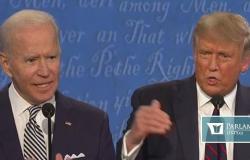Political scientist Petr Drulák explains the moderation of the Iranian attack on April 13 this year.
After Israel bombed the Iranian consulate in Damascus, killing thirteen people, including senior commanders of Iran’s Revolutionary Guards, it was clear that Iran would have to respond. Tehran had two options – to add fuel to the fire or, on the contrary, to suppress the conflict. With Saturday’s air attack on Israel, he clearly chose the second option. He acted with moderation and at the same time managed to save face. Now it is up to Israel to accept the offer to defuse the conflict. This should not pose any great dilemma, as Israel came out of the situation well. Any escalation would threaten not only Israel.
At first glance, the Iranian attack may not appear to be an expression of any particular moderation. The night before last Saturday, he sent 170 drones, 120 ballistic missiles and 30 cruise missiles against Israel. The attack also set a precedent, as it had never attacked Israeli territory before. With a military operation, he confirmed both his position as a regional power and his readiness to respond to enemy actions. In addition, he tested the defense capabilities of the enemy and forced him to fire defensive missiles worth about a billion dollars at several times lower costs of his own attack.
How was his reaction moderate? Above all, he did not take advantage of the moment of surprise, he announced the attack in advance through news channels, thereby allowing Israel and its allies to prepare air defenses. He didn’t target civilians and didn’t use the most effective weapons he could have used. Therefore, Israel suffered only minimal damage. Everything was done without loss of life, the footage of burning Israeli buildings that ran on Iranian television was fake news from the Australian fire. Iran could also choose a completely different way of retaliating, which would bring significantly higher losses, by deploying more effective weapons, a more massive attack or a terrorist attack in Israel or on Israeli targets abroad. Subsequently, he made it clear that he considered the issue of the previous Israeli bombing closed with Saturday’s attack and was not interested in further escalation.
Israel can be satisfied with the results, apart from minimal losses, there are two other reasons. It has demonstrated a technologically demanding ability to defend itself against a massive air attack. Above all, however, he managed to show that he has important international allies. Not only the USA but also Great Britain, France and Jordan helped repel the attack, and there is also speculation about the role of Saudi Arabia. This is extremely valuable for Israel after it has been facing deepening international isolation in recent months as a result of the massacres it is perpetrating in Gaza.
On the other hand, this allied operation reminded the Israelis that they are not self-sufficient in strategic matters and that they need allies. From the statements of a number of Israeli officials in recent months, one could judge that part of the Israeli elite has forgotten this obvious fact. Immediately after the attack, the Israeli cabinet was divided between supporters of a retaliatory attack on Iran and opponents of further escalation. The Americans are now explaining to the Israelis that they should be satisfied with how they fared and that they should forget about any further retaliation. It is no accident that the American media and their European companions celebrate Israel’s resilience and mock Iran.
If they still do not want to understand all this in Jerusalem, Washington can threaten to stop the military aid on which Israel is vitally dependent. But can Washington, pushed by the Israeli lobby, even dare to do something like this in an election year? He certainly should. If Israel continues to escalate, there is a risk of direct involvement of the US on Israel’s side and Russia on Iran’s side.
The current situation is unique in that both Israel and Iran can convincingly claim that each emerged victorious from the confrontation. It is not enough for peace. But perhaps it will be enough for a de facto truce and averting the threat of a Russian-American conflict in the Middle East.
Article came out originally in the magazine Standard. We publish with permission. The text is not intended to be distributed to other websites!
Tags: Iranian Moderation Argument
-





